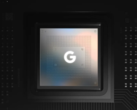We found some interesting information found on a public platform, which was brought to our attention by X user Jukanlosreve. It details key specs of Google's upcoming Tensor G5 (codenamed Laguna) and Tensor G6 (codenamed Malibu). The former will power next year's Google Pixel 10, while the latter will debut alongside the Pixel 11 series. As stated by previous rumours, both chips will be manufactured on TSMC's 3 nm node. Additionally, it is developed in-house, without any assistance from Samsung, who Google relied on previously.
| Tensor G5 (Laguna) | Tensor G6 (Malibu) | |
|---|---|---|
| Node/Die Size | TSMC N3E, POP packaging, 120 mm2 | TSMC N3P, POP packaging, 113 mm2 current, target 105 mm2 |
| CPU | 1x Cortex-X4, 5x Cortex-A725, 2x Cortex-A520 | 1x Cortex X925 successor (X930), 6x Cortex-A730, 1x Cortex-A530 |
| GPU | IMG DXT 2-core, 1,100 MHz | IMG CXTP 3-core, 1,100 MHz |
| SLC | 8 MB | 4 MB |
| Memory | 4x 16-bit LPDDR5X-8533 or 4x 16-bit LPDDR5-6400 | 4x 16-bit LPDDR5X-8533 or 4x 16-bit LPDDR5-6400 |
| I/O | USB 3.2 Gen2, UFS 4.0, DP1.4, 2x 2 PCIe Gen4 | USB 3.2 Gen2, UFS 4.0, DP1.4, 2x 2 PCIe Gen4 |
| ISP | 200 MP, 108 MP with Zero Shutter Lag, Staggered HDR, 8K 30 video recording | 100x zoom, Cinematic Bokeh engine |
One of the most notable changes comes in the form of the GPU. It looks like Google has opted out of using an off-the-shelf Arm Mali product, like it did in previous Tensor chips. Instead, it will go for a chip developed by Imagination Technologies of the PowerVR fame. The Tensor G5 will not include hardware level raytracing, but the Tensor G6 might. However, the feature may get canned at launch.
On the CPU side, the Tensor G5 will use last-gen Arm cores. The Tensor G6, on the other hand, is tipped to support the Arm v9.4 instruction set and will come with up-to-date cores. The Tensor G5 is aiming for a peak clock speed of 3.1 GHz, while the Tensor G6 could max out at 3.2 GHz. Other notable improvements include faster RAM. Both chips might launch with LPDDR5X-8533 memory, remarkably faster than the Tensor G4's 4,200 MT/s modules.
All in all, the Tensor G5 and Tensor G6 pack some promising upgrades and have the potential to make the Pixel 10 and Pixel 11 competitive with heavy-hitters from Samsung and Apple. This time, Google's software magic is backed by equally powerful hardware, and the results will be a sight to behold.
Source(s)
Own




















